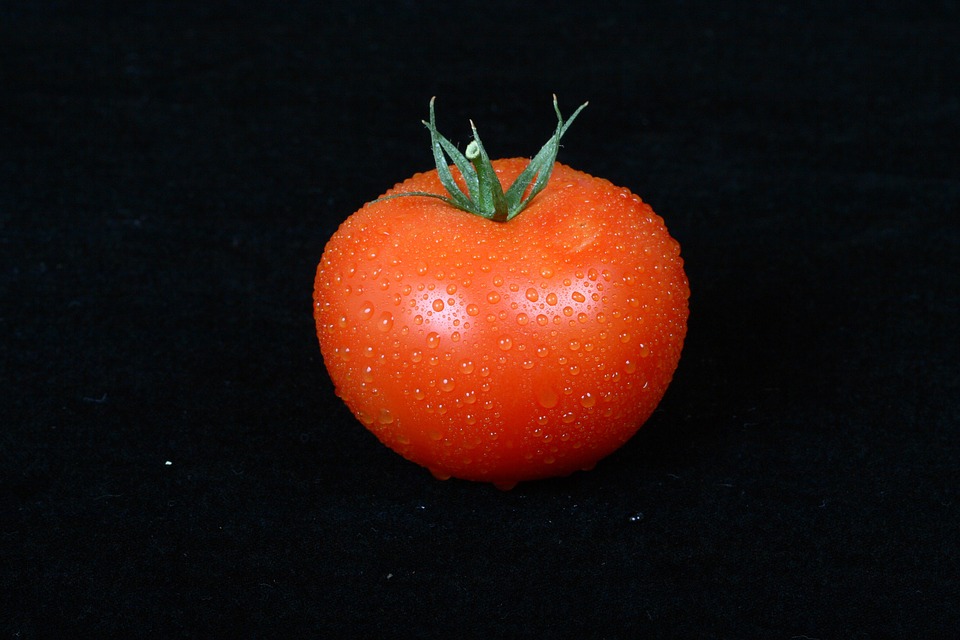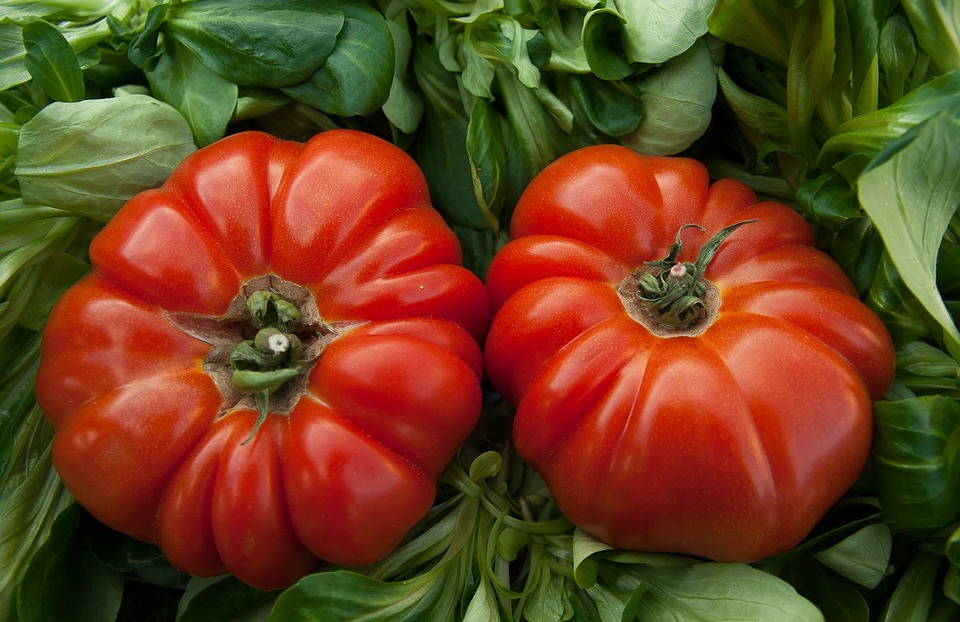The question of whether rabbits can eat tomatoes is a common one amongst rabbit owners. While these vibrant red fruits are a staple in many human diets, their suitability for our furry companions is a bit more nuanced. This comprehensive guide will explore the complexities of introducing tomatoes to your rabbit's diet, delving into the nutritional value, potential risks, and safe consumption practices.
Part 1: Understanding the Nutritional Value of Tomatoes

1.1 Vitamins and Minerals: A Treasure Trove of Nutrients
Tomatoes are a powerhouse of vitamins and minerals, boasting a rich profile that benefits human health. They are a significant source of:
- Vitamin C: An essential antioxidant that supports immune function and collagen production.
- Vitamin A: Crucial for vision, skin health, and immune function.
- Vitamin K: Plays a vital role in blood clotting and bone health.
- Potassium: An electrolyte that helps regulate blood pressure and muscle function.
- Lycopene: A powerful antioxidant linked to reduced risk of certain cancers.
1.2 Antioxidants: Fighting Free Radicals for Cellular Health
Tomatoes are rich in antioxidants, which combat the damaging effects of free radicals in the body. These antioxidants help protect cells from damage, reducing the risk of chronic diseases and promoting overall well-being.
Part 2: Delving into the Risks of Tomatoes for Rabbits

2.1 The Toxicity of Tomato Plants: A Hidden Danger
While the ripe fruit itself may pose a lesser risk, the leaves, stems, and roots of tomato plants contain a potent alkaloid called solanine. This substance can be highly toxic to rabbits, causing a range of adverse reactions, including:
- Digestive upset: Including diarrhoea, vomiting, and abdominal pain.
- Lethargy: A loss of energy and decreased activity levels.
- Neurological symptoms: Such as tremors, seizures, and disorientation.
- In extreme cases: Solanine poisoning can even lead to death.
2.2 Acidity: A Challenge for Delicate Digestive Systems
Tomatoes are acidic fruits, and their high acidity can disrupt a rabbit's delicate digestive balance. This can lead to:
- Diarrhoea: Increased frequency and looseness of stools.
- Bloating: A feeling of fullness and discomfort in the abdomen.
- Stomach pain: A general discomfort and distress in the stomach area.
2.3 Sugar Content: A Potential Contributor to Health Issues
While tomatoes are not overly sweet, they do contain a significant amount of sugar. Excessive sugar intake can contribute to:
- Obesity: An unhealthy increase in body weight.
- Dental problems: Sugar can contribute to tooth decay and plaque buildup.
Part 3: Can Rabbits Eat Tomatoes? A Balanced Approach
3.1 Ripe Tomatoes: Moderation is Key
In small, infrequent quantities, ripe tomatoes may be acceptable for healthy adult rabbits. However, it's crucial to adhere to these guidelines:
- Remove the seeds and skin: These parts contain higher concentrations of solanine and can be difficult for rabbits to digest.
- Offer tomatoes only as an occasional treat: Not as a regular part of their diet.
- Monitor your rabbit closely: For any adverse reactions after consuming tomatoes, such as digestive upset or changes in behaviour.
3.2 Green Tomatoes: A Strict No-Go
Green tomatoes are particularly dangerous for rabbits due to their higher solanine content. They should never be given to rabbits, as they can cause severe toxicity and potentially fatal health problems.
3.3 Tomato Leaves and Stems: A Toxic Threat
As previously mentioned, tomato leaves and stems contain high levels of solanine and are strictly prohibited for rabbits. They should never be allowed near your rabbit, even if it seems tempting for foraging.
Part 4: Safe and Delicious Alternatives for Your Rabbit
Instead of offering tomatoes, consider these safe and nutritious treats for your rabbit:
- Fresh herbs: Parsley, cilantro, basil, and dill are excellent choices for adding flavour and nutrients to your rabbit's diet.
- Dandelion greens: A natural source of vitamins, minerals, and fibre, dandelion greens are a favourite amongst rabbits.
- Banana: In small quantities, banana can be a delightful treat for rabbits. However, moderation is key to prevent excess sugar intake.
- Apple slices: Without seeds, apple slices are a refreshing and healthy treat for rabbits. Choose organic apples whenever possible.
- Strawberries: In moderation, strawberries can be a tasty and nutritious addition to your rabbit's diet. Avoid the leaves and stems, which can be harmful.
Part 5: Building a Balanced Diet for a Healthy Rabbit
A healthy diet for rabbits consists primarily of high-quality hay, supplemented with fresh vegetables, a small amount of pellets, and occasional treats. This balanced approach ensures that your rabbit receives all the essential nutrients for optimal health and well-being.
5.1 Hay: The Foundation of a Rabbit's Diet
Hay should constitute the majority of a rabbit's diet, providing essential fibre for digestive health and preventing dental problems. Opt for high-quality timothy hay, which is low in calories and rich in fibre.
5.2 Fresh Vegetables: A Vital Source of Nutrients
Offer a variety of leafy greens and other vegetables, such as kale, spinach, romaine lettuce, bell peppers, and broccoli, to provide essential vitamins, minerals, and antioxidants. Introduce new vegetables gradually to prevent digestive upset.
5.3 Pellets: A Supplemental Food Source
Pellets can be a supplemental food source for rabbits, providing additional nutrients. Choose high-quality pellets that are low in sugar and fat, and offer them in moderation to avoid obesity.
Part 6: Recognizing Signs of Illness in Rabbits
Being vigilant about your rabbit's health is crucial, especially after introducing new foods. Here are some signs that your rabbit may be ill, particularly after consuming potentially harmful foods:
- Lethargy: Reduced energy levels and a decrease in activity levels.
- Loss of appetite: A decline in the rabbit's usual interest in food.
- Diarrhoea or constipation: Changes in the consistency and frequency of stools.
- Bloating: A feeling of fullness and discomfort in the abdomen.
- Changes in breathing: Rapid, laboured breathing or unusual noises.
- Excessive drooling: An increase in saliva production, potentially indicating oral discomfort.
If you notice any of these symptoms, consult a veterinarian immediately for diagnosis and treatment. Early intervention is crucial in addressing health issues in rabbits.
Part 7: The Importance of a Vet's Expertise
Before introducing any new foods to your rabbit's diet, it's essential to consult with a veterinarian. They can provide personalized guidance based on your rabbit's individual health and dietary needs. They can also address any concerns you may have about potential risks or allergies.
Part 8: FAQs: Addressing Common Concerns
8.1 Can baby rabbits eat tomatoes?
No, baby rabbits should never be given tomatoes. Their immature digestive systems and higher sensitivity to toxins make them particularly vulnerable to the harmful effects of solanine.
8.2 Are cherry tomatoes safe for rabbits?
Cherry tomatoes are no safer than larger tomatoes for rabbits. They still contain solanine and can cause digestive issues, making them unsuitable for rabbit consumption.
8.3 What about tomato juice?
Tomato juice is not suitable for rabbits. It contains high levels of sugar and acidity, which can be harmful to their digestive system and overall health.
8.4 Can rabbits eat tomato skins?
Tomato skins should be avoided as they contain higher levels of solanine than the flesh. They are also more difficult for rabbits to digest.
8.5 Is it okay to feed my rabbit dried tomatoes?
Dried tomatoes are not recommended for rabbits. They are concentrated in sugar and can be difficult to digest, potentially causing digestive upset and other health issues.
8.6 Can rabbits eat tomato sauce?
Tomato sauce is strictly prohibited for rabbits due to its high sugar content, acidity, and potential for containing onion or garlic, which are toxic to rabbits.
8.7 Can rabbits eat tomato plants?
No, rabbits should never eat any part of a tomato plant, including the leaves, stems, or roots, as these contain high levels of solanine and can be toxic to rabbits.
Conclusion: Prioritizing Your Rabbit's Well-being
While ripe tomatoes may be acceptable in small quantities for healthy adult rabbits, it's crucial to exercise caution and offer them only as an occasional treat. Remember, the best way to ensure your rabbit's health is to provide a balanced diet consisting primarily of high-quality hay, fresh vegetables, and a small amount of pellets. If you have any concerns about your rabbit's diet, always consult with a veterinarian. Their expertise can help you create a safe and nutritious diet tailored to your furry companion's individual needs.
Everyone is watching
-

Do Rabbits Lay Eggs? (The Surprising Truth)
OTHER TYPES OF PETSThis article will unravel the common misconception that rabbits lay eggs, exploring the fascinating world of r...
-

What's a Group of Rabbits Called? (A Comprehensive Guide)
OTHER TYPES OF PETSThis article delves into the fascinating world of rabbits, exploring the various terms used to describe a grou...
-

Can Rabbits Eat Grapes? A Guide to Safe Rabbit Treats
OTHER TYPES OF PETSThis comprehensive guide will explore the safety and suitability of grapes for rabbits, providing detailed inf...
-

Predators That Hunt Rabbits: A Guide to Natural Enemies
OTHER TYPES OF PETSI've always been fascinated by the circle of life, that delicate dance between predator and prey. Growing up ...
-

Are Rabbits Nocturnal Animals?
OTHER TYPES OF PETSThe question of whether rabbits are nocturnal animals is a fascinating one, with a surprisingly complex answer...
